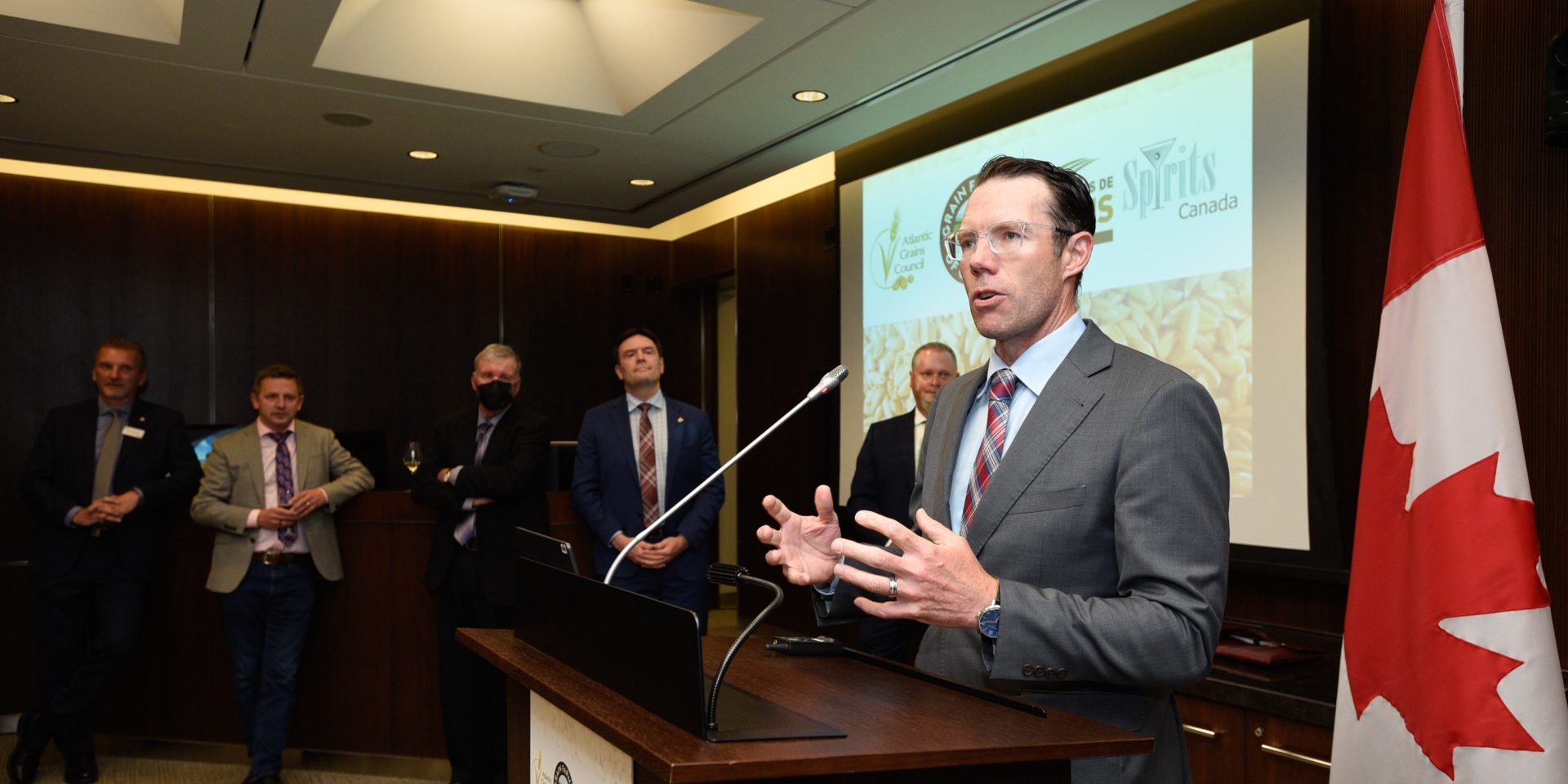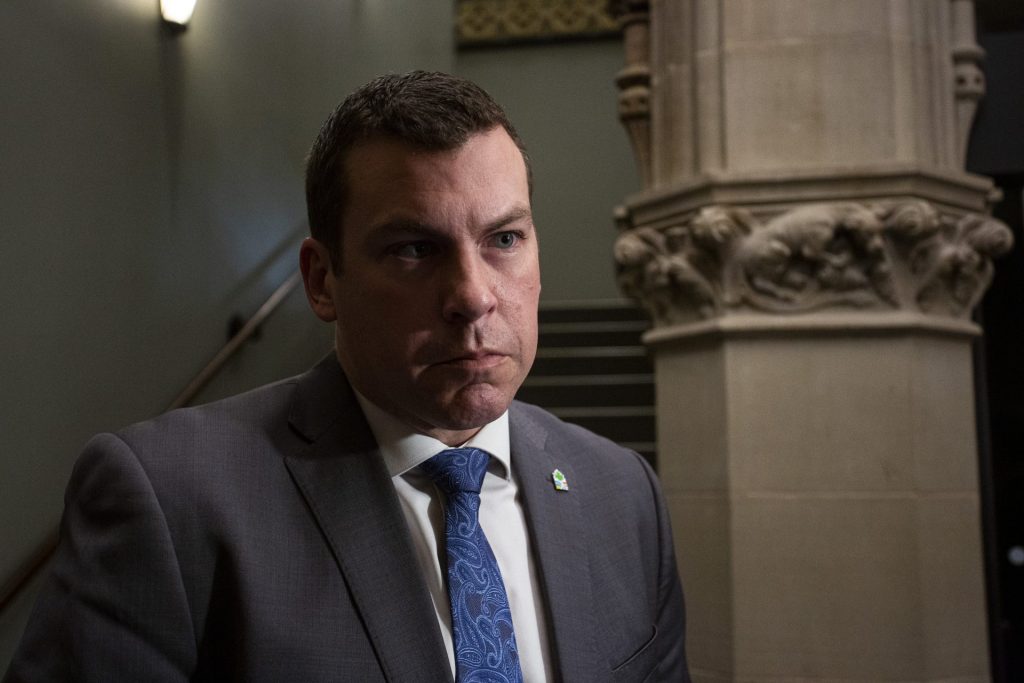Tory ag critic questions efforts to engage with China as canola tariffs drag into harvest season

The Conservative critic for agriculture is criticizing the government’s approach to recent trips to China as being ineffective, amid a bruising trade war that is targeting Canada’s agriculture sector.
The House Agriculture and Agri-food Committee met Sept. 22 for a briefing on the impact of tariffs on the sector. The committee heard from officials from Agriculture and Agri-food Canada, Global Affairs Canada, and representatives from the agriculture and food manufacturing sector.
Conservative MP John Barlow (Foothills, Alta.), who vice-chairs the committee, suggested “the current government is having some difficulty getting meetings with high-level officials, with their Chinese counterparts, which is a problem.”

“I would just hope that this government was able to get high level meetings with their Chinese counterparts to get this resolved,” Barlow said. “These trips are going over there with no results, and no meetings are not consequential and not effective. So I’m hoping that’s something that will be changed in the very near future.”
China is Canada’s second-largest customer for agriculture and seafood, purchasing $11.5-billion worth of products in 2023.
This spring, China slapped a 100-per-cent tariff on Canadian canola oil, canola meal, and peas, as well as 25-per-cent levies on certain pork, fish, and seafood products, escalating the trade war in mid-August by adding a 75.8 per cent duty on all Canadian canola seed shipments.
In November 2024, then-agriculture minister Lawrence MacAulay travelled to Beijing and met with “Chinese industry leaders, importers, and key Canadian stakeholders,” according to a readout after the trip.
Tom Rosser, assistant deputy minister of Agriculture and Agri-food Canada’s market and industry services branch, told the committee he didn’t recall MacAulay meeting with any representatives from the Chinese government.
More recently, Saskatchewan Premier Scott Moe led a trade delegation to China, and was joined by Liberal MP Kody Blois (Kings—Hants, N.S.) who was agriculture minister from March until May, and is now Prime Minister Mark Carney’s (Nepean, Ont.) parliamentary secretary.
Blois met with China’s executive vice minister for foreign affairs, Ma Zhaoxu, China’s vice minister of commerce, Li Chenggang, and other officials, “to discuss pathways to resolve existing trade irritants,” according to a press release after the early September trip.

Barlow asked if Carney, or Agriculture Minister Heath MacDonald (Malpeque, P.E.I), had any pending plans to travel to China to meet with their Chinese counterparts.
Rosser said there are frequent “high-level” talks with Chinese officials via Canada’s embassy in Beijing. Darren Smith, executive director of Global Affairs Canada’s Indo-Pacific trade policy division, also said International Trade Minister Maninder Sidhu (Brampton East, Ont.) has “engaged with his interlocutor.”
“There are possibilities that there will be further engagement as we go through the fall, but I can’t confirm at this point in time these meetings have been scheduled,” Smith said. “But I will say, there are engagements at all levels.”
As previously reported by The Hill Times, Rob Stewart, deputy minister of international trade at Global Affairs Canada, and China’s vice-minister of commerce Li Chenggang co-chaired a meeting of the China-Canada Joint Economic and Trade Commission in Ottawa on Aug. 27. The meeting focused on improving and developing bilateral trade and economic relations between the two countries.
In Rosser’s opening remarks to the committee, he said tariffs are re-shaping Canada’s trade environment.
“Canada is, at its core, a trading nation, and a major supplier of food globally in 2024,” Rosser said, with agriculture and seafood exports valued at over $100-billion last year. More than half of Canada’s agriculture production is exported, he said, “which means stable, predictable market access is vital for farmers.”
Rosser emphasized Canada’s efforts to find other export markets for agricultural products, including in the Indo-Pacific region, Latin America, and North Africa.
But industry leaders warn China’s massive market can’t be easily replaced, with the potential for dire impact on the canola sector.
Chris Davison, president and CEO of the Canola Council of Canada, said Canadian canola products have a “strong reputation” and there are other markets for the product, but these new markets “cannot be expected to make the Canadian canola industry whole in terms of volume or value, as a result of the demand signal that has been lost with the closure of the Chinese market.”
He said it’s relatively early to assess the impact of the tariffs, but “removal of a demand signal the magnitude of China” has widespread impact on the industry, “starting at the farm gate and extending across the value chain,” including processors and exporters.

Rick White, president and CEO of the Canadian Canola Growers Association, said canola farmers rely on international trade for their farms’ financial viability, adding China is Canada’s largest market for canola seed, second-largest market for canola meal, and overall “a very important market” for the sector.
“I cannot overstate the importance of this issue to canola farmers and the uncertainty that it has cast over farmers’ ability to market their 2025 canola crop, of which they are still currently harvesting as we speak,” he said.
The canola sector contributes $43.7-billion to the Canadian economy annually, White said, and 90 per cent of canola is exported.
Canada exported approximately $4.9-billion in canola products to China alone last year, he said, and while the loss of any export market is concerning, trade trouble with China is “of particular concern.”
White said the industry’s chief concern is re-opening the Chinese market to Canadian canola, he said, adding “we’re encouraged by recent engagement with our industry at the highest levels, and the efforts by both federal and provincial government officials to engage in China and with China.”
But, he added, “if the market cannot be reopened in the very near term, the government needs to be prepared to compensate canola farmers in a manner that is commensurate with the losses that they have actually incurred from the market closure with China.”
Rosser said there is support in place for the canola industry, including a boost in funding for agriculture marketing in an attempt to develop new trade markets for Canada, as well as an increase in interest-free portion of the advanced payment program for canola producers.
White said increasing the interest-free part of the advanced payment program isn’t the right tool, though, because “if this ends up to be a protracted crisis, that loan has to be paid back in September next year.”
Carney met with canola industry representatives last week, and White said while he doesn’t dictate the prime minister’s travel schedule, “it certainly was indicated that [Carney] needs to fix the political problem at the highest level in China.”
mglass@hilltimes.com
The Hill Times






 LICENSING
LICENSING PODCAST
PODCAST ALERTS
ALERTS













